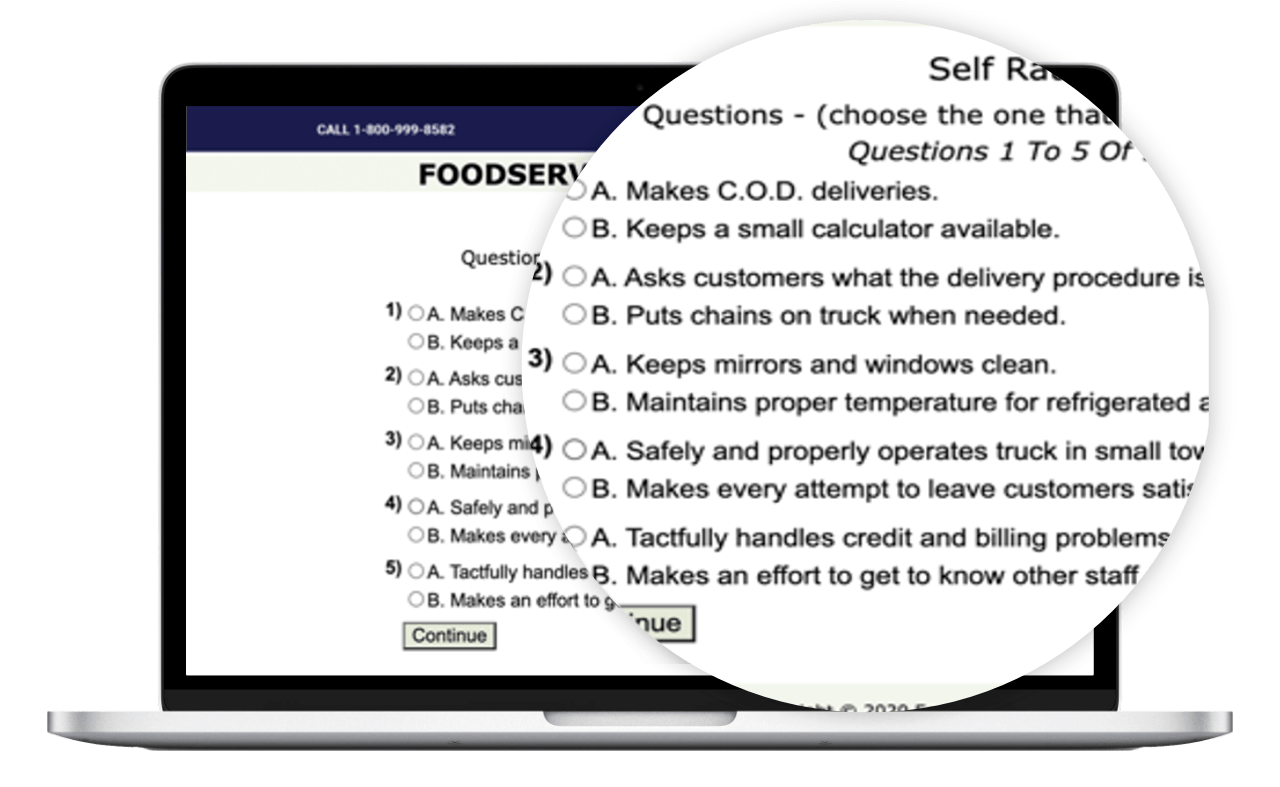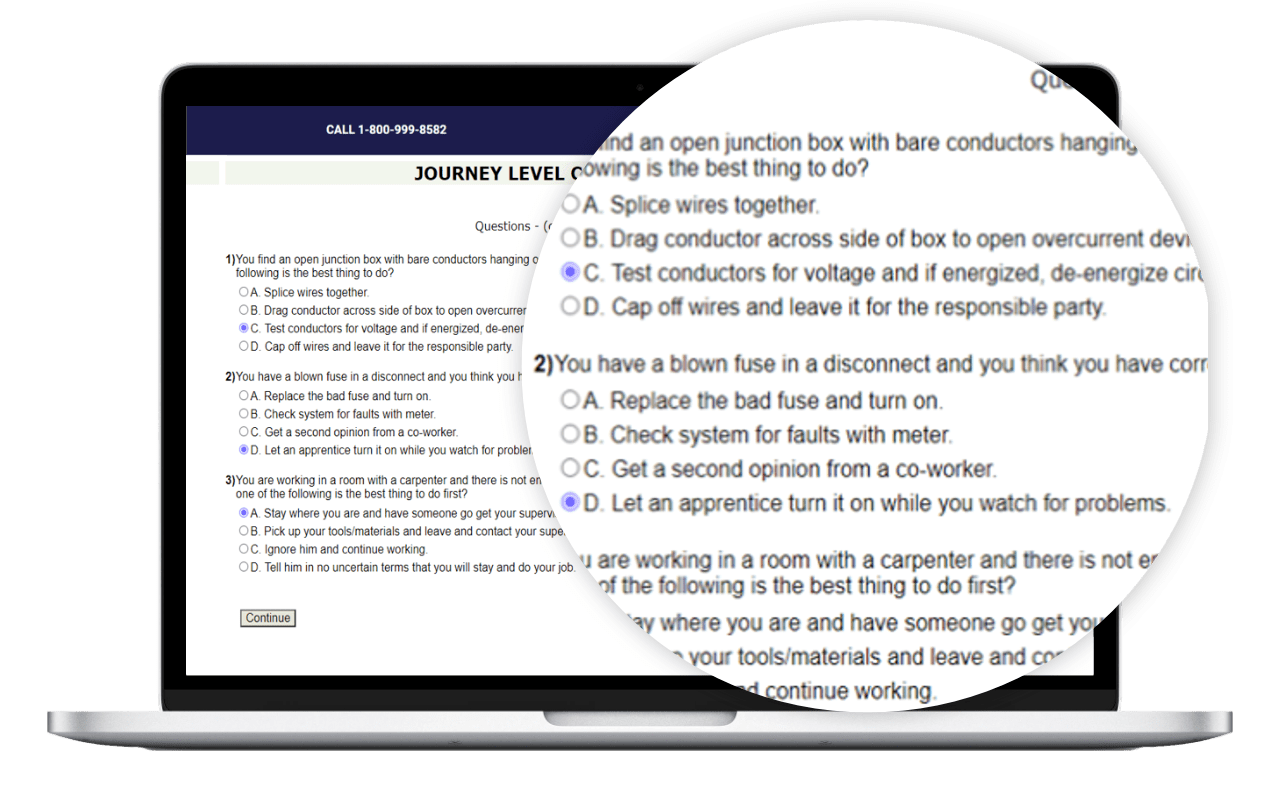A Diesel Technician, also known as a Diesel Mechanic, is a skilled professional responsible for inspecting, diagnosing, repairing, and maintaining diesel-powered vehicles and equipment… Read More
This scientifically valid methodology identifies 100+ key high-performance job behaviors, forming the basis of the Job Success Profile™. Through a comprehensive questionnaire, applicants can assess their alignment with the known high-performance behaviors of top performers.
The way Diesel Technicians approach their work organization has substantial consequences. Effective planning and organization yield positive outcomes by minimizing wasted time, maximizing productivity, and ensuring efficient and quality task completion. Such careful preparation, including verifying parts availability, can significantly boost job profitability. Conversely, the absence of planning and organization results in inefficiencies, necessitating backtracking and error correction. This disorganized approach leads to overlooked tasks, resource mismanagement, and longer job durations, ultimately negatively impacting productivity and customer satisfaction. Overall, prioritizing planning and organization positively influences job performance, customer contentment, and company profitability, while neglecting these aspects leads to the opposite outcomes, affecting both technician and company reputation.
A Diesel Technician's emphasis on quality over quantity yields a range of significant consequences. Recognizing that getting the job done correctly the first time is paramount to avoid rework, top technicians achieve reduced errors, enhanced time efficiency, and long-term cost savings. This quality-centric approach not only elevates customer satisfaction by ensuring tasks are completed correctly without the need for repeated visits but also builds a reputation for reliability and excellence, fostering trust among customers and colleagues. Conversely, neglecting quality and prioritizing quantity can result in severe repercussions, as evidenced by a study in a large Midwest diesel shop. Those who did not pass the assessment experienced a staggering 300% increase in rework, consuming additional time, resources, and costs while negatively impacting efficiency and customer relationships. In essence, focusing on quality positively influences job performance and the technician's reputation, while neglecting it can have profound and costly repercussions for both the technician and the company.
A Diesel Technician's ability to discern when to approach the supervisor with issues and problems yields a range of consequences. The best technicians understand that not every minor problem requires supervisor involvement; they take responsibility and address issues independently, saving valuable time and resources. This approach showcases self-reliance and problem-solving skills, fostering an efficient and harmonious work environment while promoting trust and autonomy within the team. Conversely, failing to discern when to seek supervisor guidance can lead to inefficiencies, disrupting workflows and potentially affecting team dynamics and morale. Moreover, overreliance on supervisors for minor issues hinders personal growth and problem-solving skills, wasting time and hindering personal and team efficiency. Knowing when to involve the supervisor fosters proactive problem-solving and enhances overall work performance.


We created this section, in part, because many applicants have little or no idea before employment about the full range of behaviors expected of them should they be hired. The Interest & Willingness section gives applicants an opportunity to rate themselves on all the behaviors and other conditions of employment.
It serves four purposes:
1st, it acts as a communication tool to the applicant by giving them a comprehensive overview of the behaviors they will need to bring to the job to be successful. 2nd, it allows applicants to select any unwilling responses that flag possible problems and, 3rd, it provides a highly useful and detailed profile of the strengths and weaknesses of the applicant. This profile can be used for more effective training, placement, and further development of existing employees. Finally, this section serves as an understanding between the employer and employee of what is expected in the job.


The assessment accurately identifies applicants who describe themselves in high-performance terms which makes this section a very powerful part of the assessment. The correct answer to each of the pairs is, in fact, the Job Success Profile of high-performance employees. This section measures each applicant to see how closely they come to matching the success profile of known, superior performers.


This section is designed to look for applicants who, by their responses, demonstrate the same competencies as the known outstanding performers.
It asks applicants to choose a response to actual on-the-job scenarios that illustrate high-performance behaviors.



A Diesel Technician, also known as a Diesel Mechanic, is a skilled professional responsible for inspecting, diagnosing, repairing, and maintaining diesel-powered vehicles and equipment. Diesel technicians work with a wide range of vehicles and machinery, such as trucks, buses, construction equipment, and agricultural machinery, to ensure their proper functioning and optimal performance.
Designed with top producing SMEs
SelectRight assessments are developed using subject matter experts. We assess potential subject-matter experts based on their skill/knowledge, ability & performance, and reputation & management consensus. Before being published, each test is rigorously peer-reviewed, then calibrated using hundreds of test takers with relevant experience in the subject. Our feedback mechanisms and unique algorithms allow for continued reliable and accurate test performance.